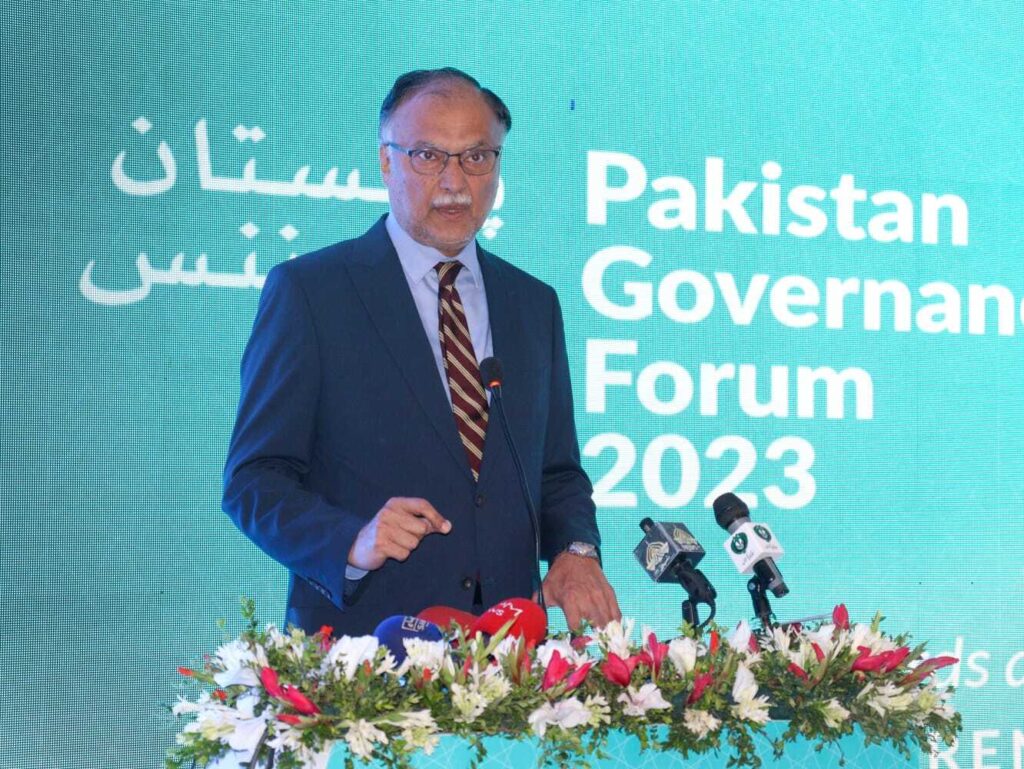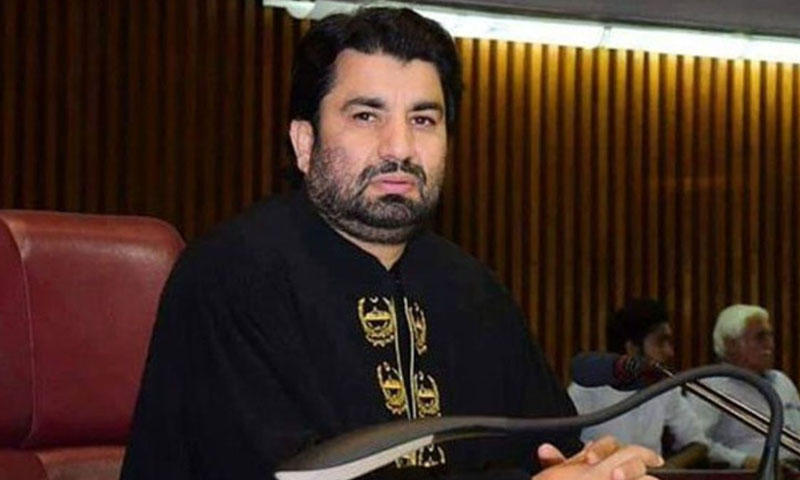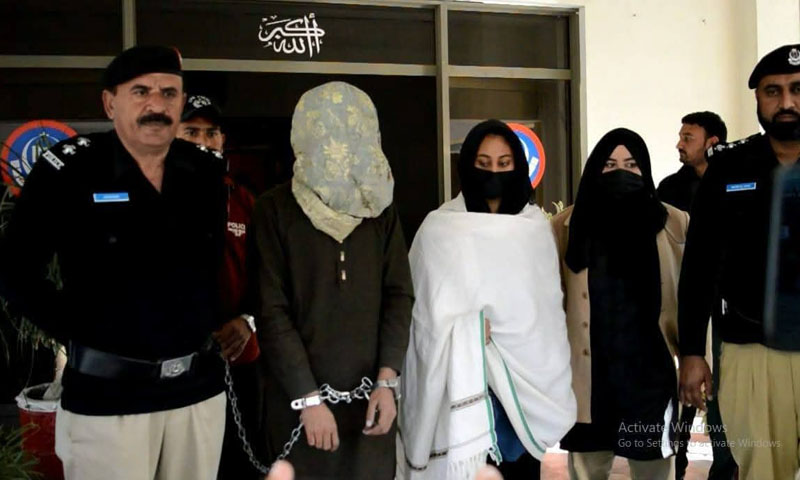- Web Desk
- Feb 09, 2026
Ministry kicks off roadmap for transparent governance system
-

- Web Desk
- Jul 25, 2023

ISLAMABAD: The planning ministry on Tuesday inaugurated the “Pakistan Governance Forum 2023”, aiming to create a roadmap for a stable, transparent, agile, and responsible (STAR) governance system in the country.
The event, part of the landmark initiative ‘turnaround Pakistan,’ is expected to serve as a crucial platform for exchanging ideas and formulating a comprehensive roadmap that will shape Pakistan’s future governance.
The event was graced by the presence of hundreds of prominent figures from diverse sectors, political leaders, experts, and representatives from civil society, all engaging in discussions on various critical aspects of governance.
Federal Minister for Planning, Development and Special Initiatives Ahsan Iqbal was the chief guest.
The forum includes a series of 24 sessions held simultaneously, covering different themes where experts share their insights and propose solutions to address the challenges faced in various fields.
In the opening session, Ahsan Iqbal emphasised the critical role of effective governance in the face of unprecedented global changes.
He acknowledged the challenges posed by rapid technological advancements, social transformation, and the growing demand for active citizen participation in governance. Minister Iqbal stressed the importance of a balanced approach that embraces change while preserving stability and order in society.
He called for an inclusive and collaborative approach to governance, where political differences are set aside, and the entire nation works together as team Pakistan to address the country’s challenges.
Iqbal highlighted the necessity of responsible, transparent, and stable governance to build public trust and ensure accountability.
Furthermore, he emphasized the significance of effective local governments in bringing governance closer to communities and ensuring their active participation in decision-making processes.
He also shed light on the 5Es framework for Pakistan’s progress, focusing on exports, E-Pakistan, environment, energy, and equity.
He stressed the importance of restructuring the economy for export-led growth and harnessing the potential of Pakistan’s young population in the digital economy.
The planning minister expressed his unwavering commitment to working for the prosperity and growth of Pakistan, calling on everyone to adopt a positive and collaborative approach.
The planning ministry has established the Governance Innovation Lab (GIL) to ensure transparency and improve service delivery in the country.
The lab aims to enhance transparency and resolve problems faced by various government departments.
Addressing governance challenges, Iqbal highlighted the need for efficiency and transparency in government operations. He emphasized the implementation of policies and the importance of practical actions to bridge the “knowing-doing gap.”
The expressed his determination to work towards the prosperity and growth of Pakistan, urging everyone to adopt a positive and collaborative approach.
He called for collective efforts in finding practical and doable ways to implement the country’s knowledge and wisdom to achieve sustainable development goals.
Essential components of STAR
Dr Adnan Rafiq, member governance, innovation and reforms at the planning commission, outlined the essential components of the STAR governance system.
He emphasized that Pakistan Governance Forum 2023 was a testament to the government’s commitment to strengthening democratic principles and fostering a better Pakistan for all its citizens.
The forum recognized the paramount importance of continuity in inclusive, consultative, and evidence-based policies, calling for collaboration among all state organs, tiers of government, and key stakeholders.
Dr Rafique emphasized the need for harmony and teamwork within the constitutional framework.
He also stressed the necessity of anticipating and adapting to emerging challenges, such as climate change, geopolitical shifts, and pandemics. He underscored the importance of evidence-based decision-making and leveraging technology to navigate uncertainties successfully.
UNDP resident representative in Pakistan Samuel Rizk acknowledged the significance of the discussions in shaping a governance roadmap that supports inclusive growth and development.
Additionally, he appreciated the ministry for organizing the forum, reflecting the long-standing partnership between UNDP and the government of Pakistan in addressing the country’s challenges.
Rizk highlighted the multiple crises that the world faces today, encompassing climate shocks, socioeconomic inequalities, global political polarization, and technological ambivalence.
He emphasized that these crises demand urgent and collective action to address their profound impacts on billions of lives globally.
Given Pakistan’s population of over 240 million, primarily comprising young individuals, the country is particularly vulnerable to these challenges.
HEC chief Chairman Dr Mukhtar Ahmed remarked that effective governance is the key to addressing major issues prevalent in the education sector and society as a whole.
Furthermore, he applauded the forum’s inclusion of themes focusing on transparency and responsibility, acknowledging that addressing such crucial topics might be challenging but is necessary for progress.
He expressed optimism that the forum’s discussions would bring greater recognition to the importance of governance and prompt action in this critical area.
Read more: Those obstructing development process do not deserve power: Maulana
The first day of the event witnessed around 12 sessions, including topics like “Revamping Judicial System: Strategies for Building Legitimacy, Trust, and Accountability.
It also covered “Empowering the Parliament: Roadmap Towards Parliamentary Supremacy,” “Establishing Trichotomy of Power.”
It also covered “Political, Administrative and Financial Empowerment of Local Governance in Pakistan,” among others.
Second day of the event
On the second day of the forum, 12 sessions will cover themes like “Catalyzing Growth and Productivity through the China-Pakistan Economic Corridor and Special Economic Zones.
It also have session on “Countering Fiscal Deficit: Alternative Approaches to sustainable Economic Recovery.”
“Countering Extremism in Pakistan: Deciphering the Mob Lynching Phenomenon and Formulating Effective Strategies for Mitigation” will also be discussed.
The event will cover “Countering Cross-Border Terrorism: Strategies for Curtailing Terrorism and Repositioning Pakistan in a Changing Multipolar Global Landscape.”
It will also cover “Impact of the Charter of Democracy and Policy Continuity on Democratic Stability in Pakistan,” among others.




